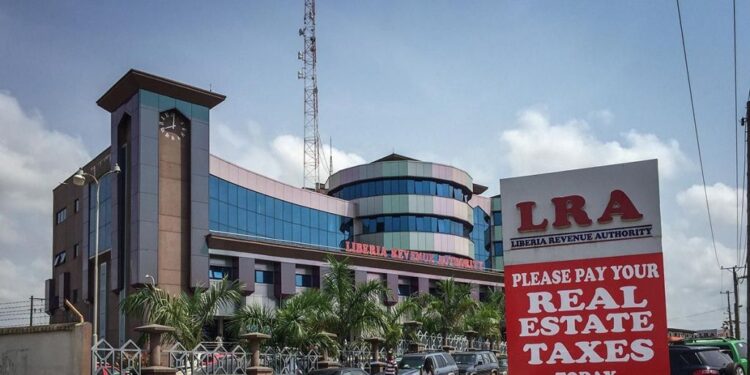Over the years, the Liberia Revenue Authority (LRA) has long been regarded as a relatively well governed government institution, and the appointment of Dorbor Jallah, further reinforced this perception. I have long admired Commissioner General James Dorbor Jallah, for his public commitment to integrity and transparency. His speeches have often inspired many employees to uphold the highest ethical standards in their duties.
However, recent developments within the LRA have cast a shadow over his administration, leading many of LRA’s employees to question the authenticity of the values they once believed were shared. This sentiment was re-echoed at a recent general staff meeting, held on last Friday, March 28th, 2025.
A Gentleman’s Agreement That Undermines Internal Audit Integrity
Approximately a year ago, CG Jallah arranged with the Internal Audit Agency (IAA) to have Zuah Williams, an internal auditor who had previously worked with him at the Public Procurement and Concessions Commission (PPCC), assigned to him.
This assignment, while perhaps justified under the guise of professional familiarity, raises serious ethical, governance, and compliance concerns. It also violates the principles of internal auditing and weakens the credibility of both the LRA and the IAA. The assignment of an internal auditor through personal arrangements compromises the very purpose of internal auditing. Internal auditors are expected to provide objective assurance and independent oversight, but, when an auditor is handpicked by the commissioner General, the line between oversight and favouritism become dangerously blurred.
In the past, it was common for heads of public institutions in Liberia to handpick their comptrollers and even transition with them when moving to other agencies. The government eventually recognized this as a red flag and enabler of undue influence, which lead to policies discouraging this practice. If such favouritism was seen as problematic for comptrollers, why is the Commissioner General of the Liberia Revenue Authority, who brands himself as an “integrity king kong”, supporting the same practice with an internal auditor.
This arrangement is more than a breach of professional standards, it is a glaring conflict of interest. By requesting from the IAA a familiar internal auditor through a gentleman’s agreement with the IAA, the CG has positioned someone he can control within the LRA. This internal auditor (Zuah Williams) is currently not serving as an independent oversight professional; instead, he operates as the CG’s personal auditor, investigator, chief legal advisor and confidante, doing CG’s bidding under the guise of objectively and exposing fraud. Mr. Williams behaviour-which is encouraged and reinforced by CG Jallah-has been nothing short of disruptive, creating a toxic work environment where other employees feel undermined and demoralized.
Disruptive and Unprofessional Conduct
Unlike standard procedures, CG Jallah’s internal auditor arrived at the LRA without a clear audit plan and was accompanied by a junior staff member, which is unusual for a sector Director, as per the IAA’s terms of reference for a sector director which states, “The Sector Director supervises Directors, Audit Managers and Audit Supervisors, and other Internal Auditors, within the assigned government sector.” Rather than being assigned to oversee a sector and provide supervision to directors, audit managers, supervisors and other internal auditors, Mr. Williams appointment seems to be a permanent one at the LRA. He’s even maneuvering for a fulltime position at the LRA.
From the outset, CG Jallah’s internal auditor’s conduct was anything but professional. Rather than collaborating with LRA’s existing internal audit department – a team led by a seasoned and competent Chief Internal Auditor-he positioned himself as an omniscient authority, claiming expertise in areas beyond his mandate and professional competence.
What is most disheartening is the unwavering support Mr. Williams receives from CG Jallah. Despite numerous complaints and clear evidence of overreach, the commissioner General not only tolerates but endorses this behaviour. This alliance has led many employees in the LRA to believe that Mr. Williams serves more as a personal agent to the commissioner General, than as an independent oversight professional.
A few of the red flags:
- Mr. Williams assigned to the LRA at the request of Dorbor Jallah.
- CG Jallah has encouraged Mr. Williams to position himself as an omniscient authority, claiming expertise in areas far beyond his professional competence, thereby undermining seasoned professionals.
- Through CG’s influence, he’s being provided with a brand new LRA pickup, fuel, laptop, scratch cards, and other resources, making him dependent on the entity he is supposed to be auditing.
- Instead of working within the LRA’s existing internal audit structure, he has been disruptive, asserting authority beyond his role and even demanding to be called “Chief Internal Auditor” despite the LRA having a fully staffed and functioning internal audit department.
- He is attending law school full-time, effectively engaging in labor theft while on government payroll; and enjoy privileges at both the IAA and the LRA
The Commissioner General’s full support of such actions contradict his public stance on integrity. If the government has rejected the practice of transitioning with comptrollers to prevent undue influence, why should the same principle not apply to internal auditors? If anything, an internal audit’s independence is even more critical, as their role is to provide unbiased assurance, and not to be an extension of the head of entity.
This situation demands urgent scrutiny. The IAA must recall Mr. Williams immediately and reinforce policies to prevent such conflicts of interest. The LRA must respect the independence of its own internal audit department instead of enabling external interference. The commissioner General must answer a fundamental question: if he truly champions integrity, why is he promoting a practice that Liberia has been deemed to be a threat to good governance and transparency.
Amara Johnson









Discussion about this post